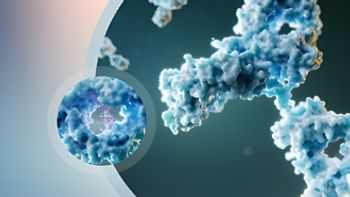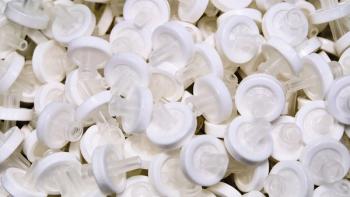
- BioPharm International-06-01-2014
- Volume 27
- Issue 6
A Sampling of New Tools for Downstream Processing
Industry suppliers describe new technologies to facilitate downstream processing.
Several recent developments are leading to an increase in adoption of single-use technology in downstream processing, and more progress can be made, but it is important for providers to offer the right technologies at the right scale, according to Helene Pora, vice-president of single-use systems with Pall Life Sciences. “As a whole, suppliers are developing single-use technologies that are continuous in nature, and these advances have helped the adoption of single-use technologies in downstream applications,” Derek Masser, sales director with ASI-Life Sciences adds.
“In reality, however, areas such as tangential flow filtration (TFF) and chromatography have not seen a great deal of development in terms of single-use, ready-to-use, integrated models,” notes Pora. “There is still a lot to prove regarding reliability, particularly at large scale, although Pall has made the first steps with the introduction of ready-to-use gamma irradiated TFF modules and a single-use platform that offers cross-functional downstream solutions for running depth filtration, virus filtration, virus inactivation, and polishing applications with membrane chromatography.”
EMD Millipore also offers fully-automated single-use TFF and chromatography systems that have been designed for both operational flexibility and scalability, according to Willem Kools, head of field marketing and the biomanufacturing sciences network. “The modular system can be used for both TFF and chromatography with a minimum number of component changes, reducing both capital investment and product development times, and as a result, has attracted attention from contract manufacturers and biopharma companies installing pilot-plant operations,” Kools says. EMD Millipore has also introduced new high-performance single-use process consumables, including clarification filters and flocculants for handling cell removal and initial purification, as well as pre-packed columns.
Additional column sizes are also becoming available, and some vendors are now willing to work with any resin type, which is increasing the flexibility component for chromatography, according to Christine Gebski, product manager for bioproduction at Thermo Fisher Scientific. She adds that customers are also mapping the total time spent on the actual supportive (non-producing) workflow associated with column packing and testing and are realizing the potential efficiency gains associated with moving to pre-packed columns. Thermo Fisher has developed high-performance resins that increase efficiency, throughput, productivity, and costs for downstream processing and pre-packed, limited-use columns for more rapid validation and pilot scale-up studies and early-phase clinical manufacturing.
ASI has introduced a disposable heat exchanger for use in continuous downstream processes where jacketed systems are currently employed. The exchanger can be easily set up and integrated and, in addition to providing more efficient and continuous heat transfer for accurate temperature control, it also helps reduce bioburden concerns, according to Masser.
Masser also notes that recent advances in single-use sensing technology have made it possible to provide individualized sensing capabilities that are beneficial for downstream manufacturing because the sensors are individualized to the process. In addition, new bioprocessing films with reduced extractable and leachable profiles are also helping biopharmaceutical companies meet regulatory requirements, according to Millie Ullah, senior product manager for single-use technologies with Thermo Fisher Scientific.
In 2013, Pall expanded its product offerings in purchasing Medistad Holding, SoloHill Engineering, and the LifeSciences business of ATMI, while Thermo Fisher acquired Life Technologies.
Articles in this issue
over 11 years ago
TOC Analyzer Increases Productivityover 11 years ago
Finished Product Monographs in the European Pharmacopoeiaover 11 years ago
Global Expansion Shapes Drug Oversightover 11 years ago
Bureaucratic Roadblocks Threaten Biopharma Growthover 11 years ago
Outsourcing No Longer Just for Cost-Cuttingover 11 years ago
Challenges in Analytical Method Development and Validationover 11 years ago
Brunei's Potential Pharmaceutical Market Growthover 11 years ago
Assuring Equivalency of Alternative Lot-Release Test Methodsover 11 years ago
Handheld Analyzer Improves AccuracyNewsletter
Stay at the forefront of biopharmaceutical innovation—subscribe to BioPharm International for expert insights on drug development, manufacturing, compliance, and more.




